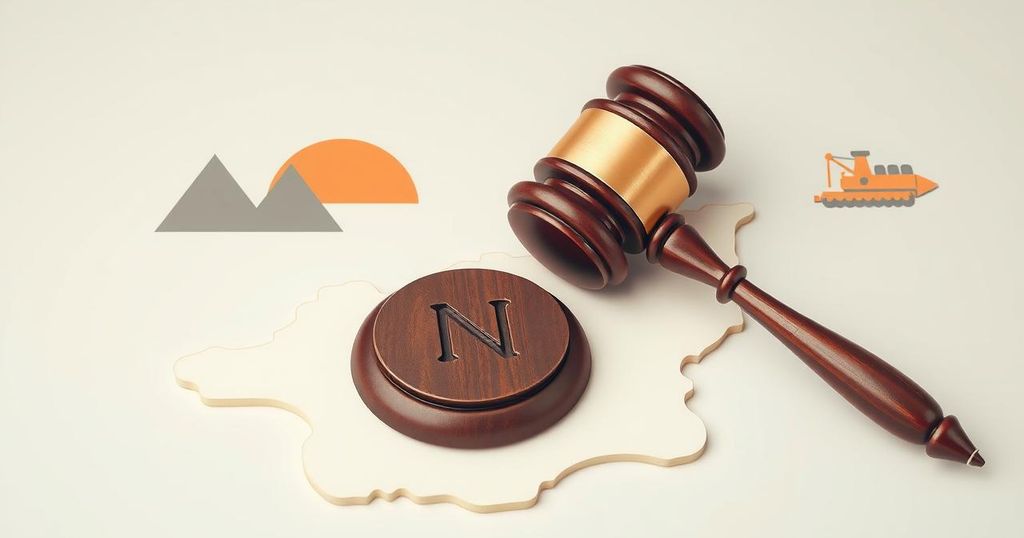Orano has filed for international arbitration against the Nigerien government over the withdrawal of its mining license for the Imouraren project. This action follows unsuccessful mediation attempts. The Imouraren project is one of the world’s largest uranium reserves, with license issues reflecting broader tensions in Niger’s mining industry. GoviEx Uranium is also contesting similar license withdrawals in the region.
Orano, a French multinational company, has initiated international arbitration against the Niger government due to the withdrawal of its mining license for the Imouraren uranium project in June. The decision to pursue arbitration follows several months of failed mediation attempts between the company and Niger. The Imouraren project, located approximately 80 km south of Arlit and 160 km north of Agadez, boasts one of the world’s largest uranium reserves, estimated at over 200,000 tU. Operating since 2009 under the company Imouraren SA, which is majority-owned by Orano (66.65%), operations were suspended in 2015 due to unfavorable market conditions. Despite restarting preparatory work earlier this year, the Niger authorities retracted the operating permit shortly thereafter. Orano emphasized that the withdrawal occurred while they were presenting a solid technical proposal intended for timely deposit exploitation, and they have retained Clay Arbitration to represent their interests. In a related situation, Niger also rescinded mining rights for Canadian firm GoviEx Uranium regarding their Madouela project, leading GoviEx to commence legal proceedings against the Nigerien government under international investment agreements.
The Imouraren project is notable for its substantial uranium reserves, positioning it as a critical asset for Orano and global uranium supply. The initial operating license was granted in 2009, signaling the project’s potential, however, market conditions prompted its suspension in 2015. Recently, Orano resumed work to mitigate previous delays but faced immediate governmental pushback with the license withdrawal, prompting the current legal escalation. Additionally, the broader issues surrounding Niger’s mining rights reflect ongoing tensions and regulatory challenges in resource management within the country.
In summary, Orano’s arbitration against Niger highlights serious disputes regarding mining licenses in the region, emphasizing the complexities involving resource extraction and governmental policies. As both Orano and GoviEx challenge Niger’s actions through international legal frameworks, the outcomes may significantly impact future foreign investment and regulatory practices in Niger’s mineral sector.
Original Source: www.world-nuclear-news.org






